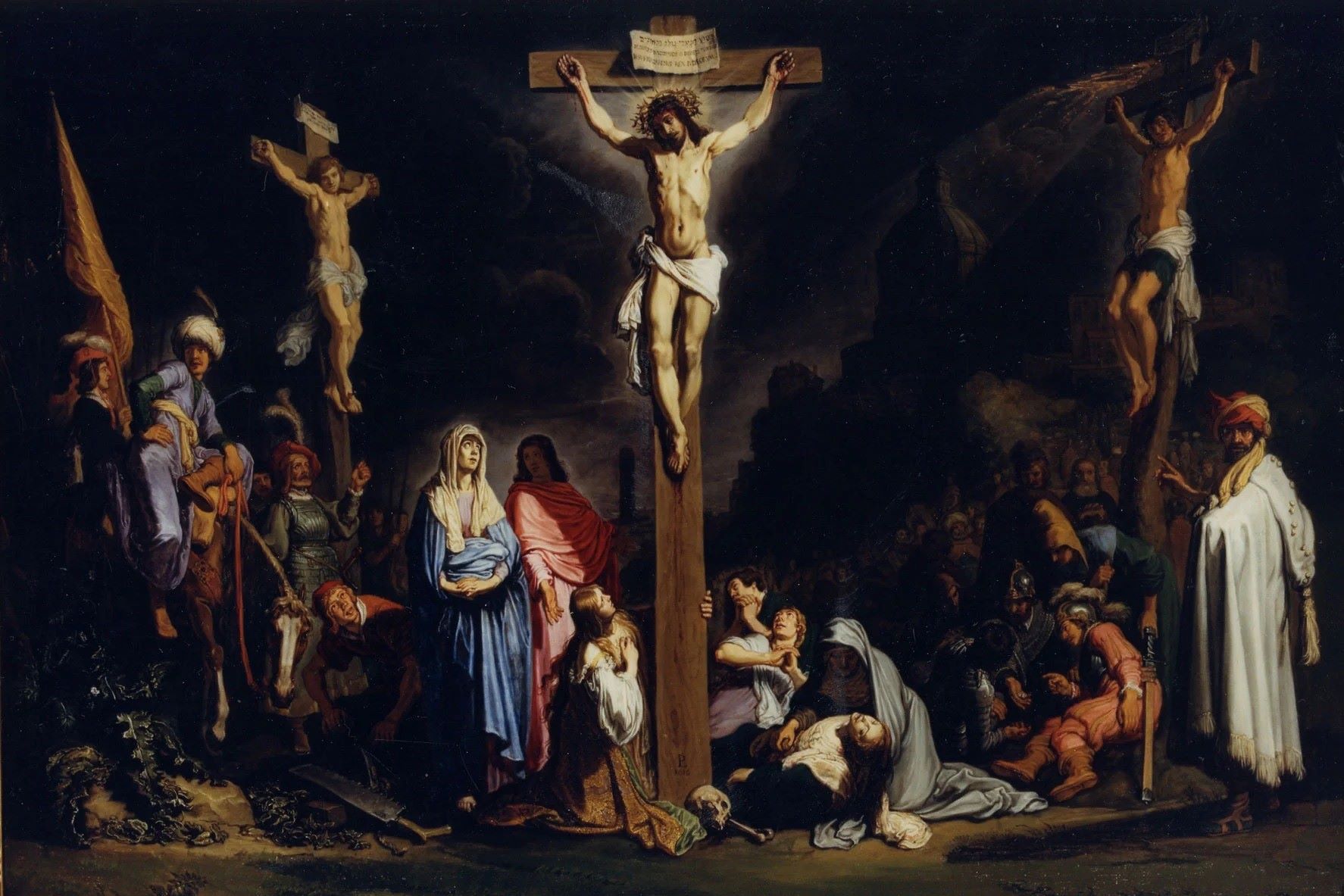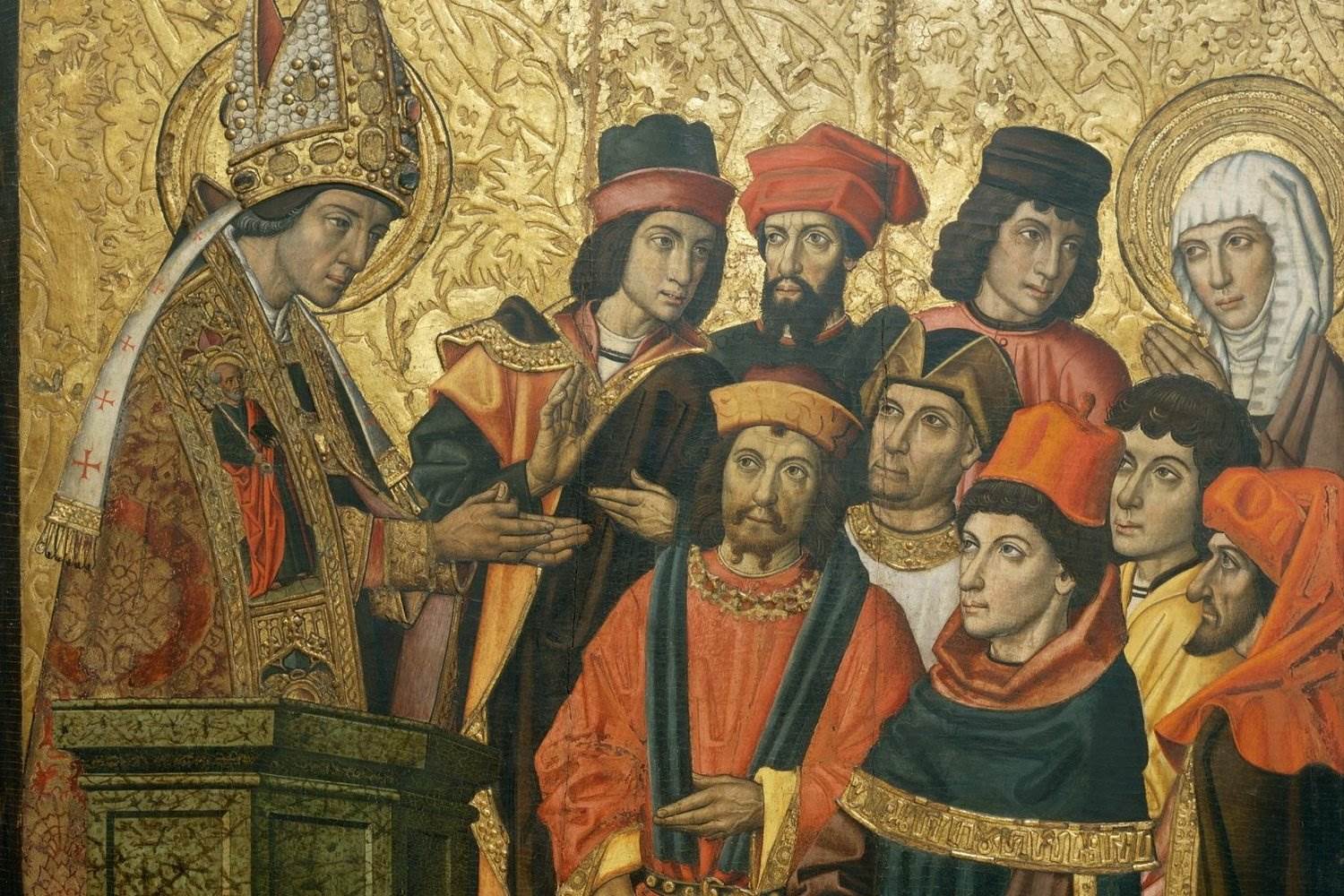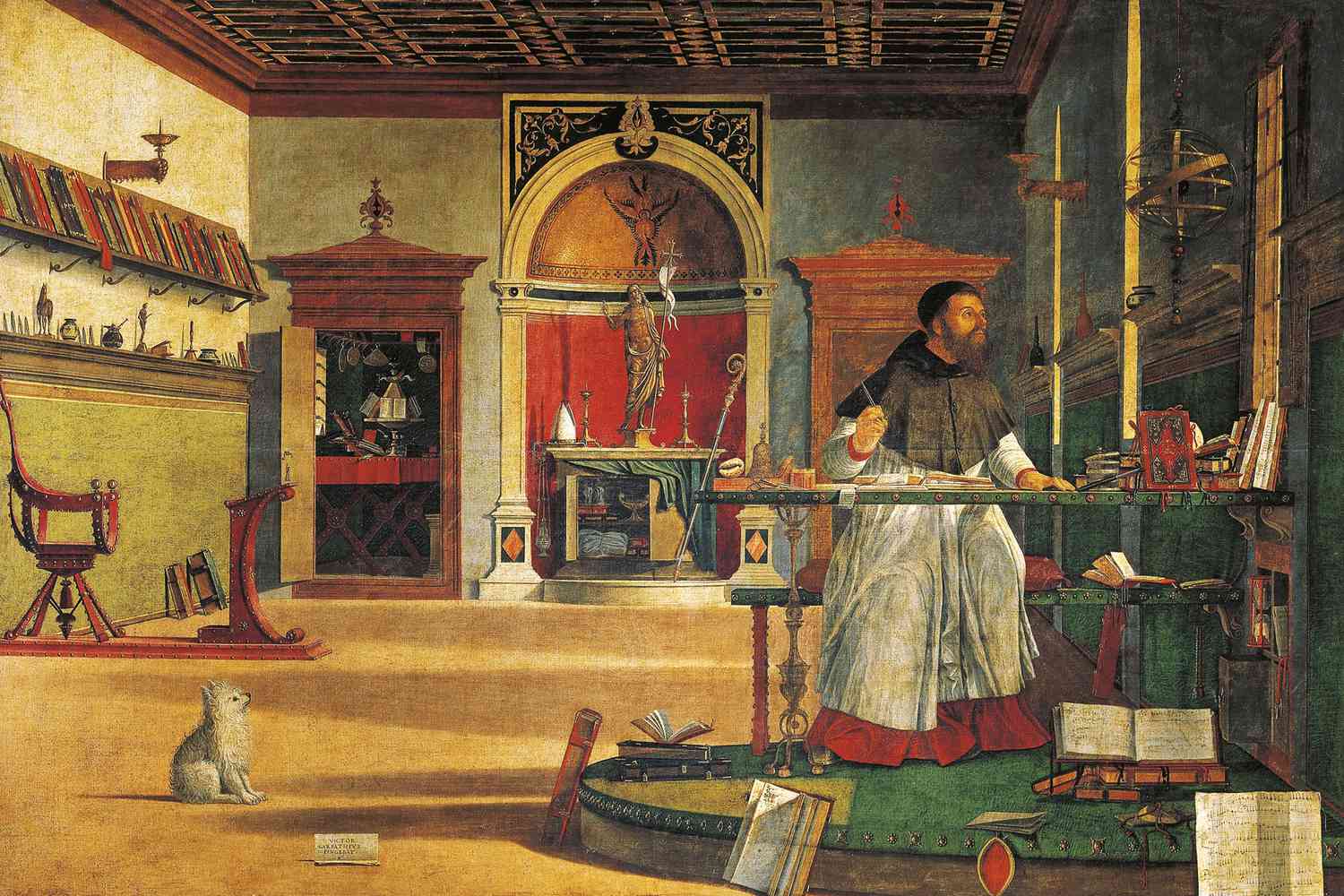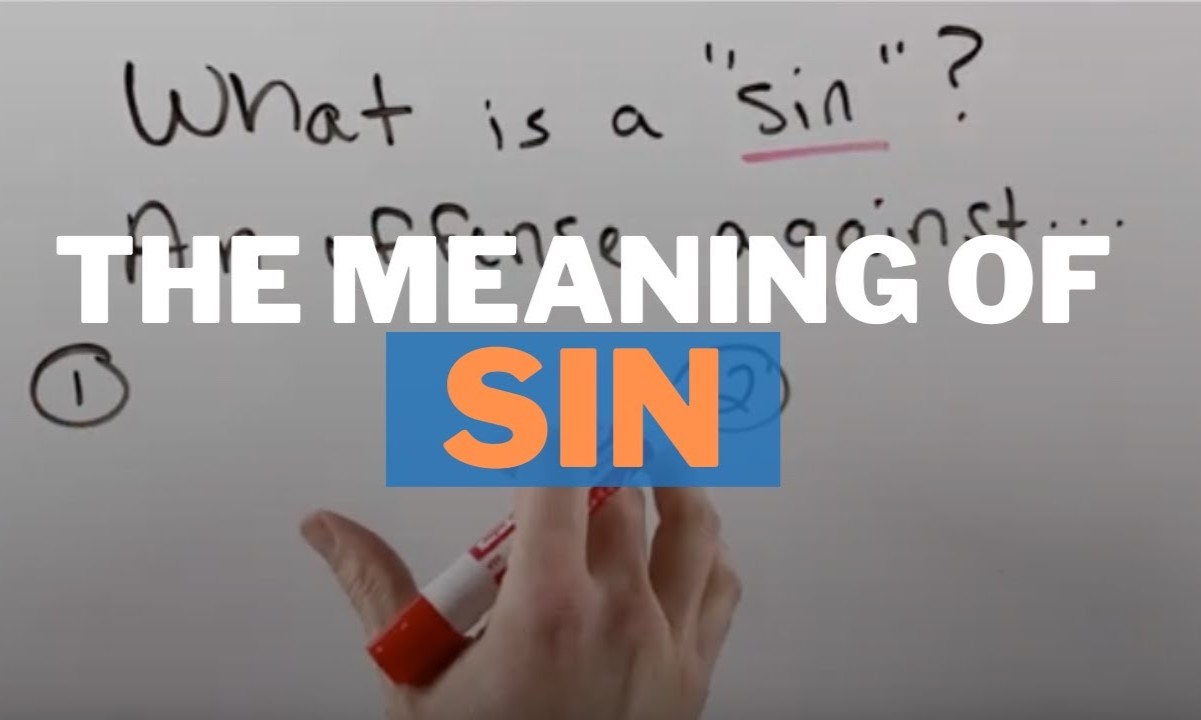Home>Theology and Spirituality>Where Does Augustine Talk About Just War
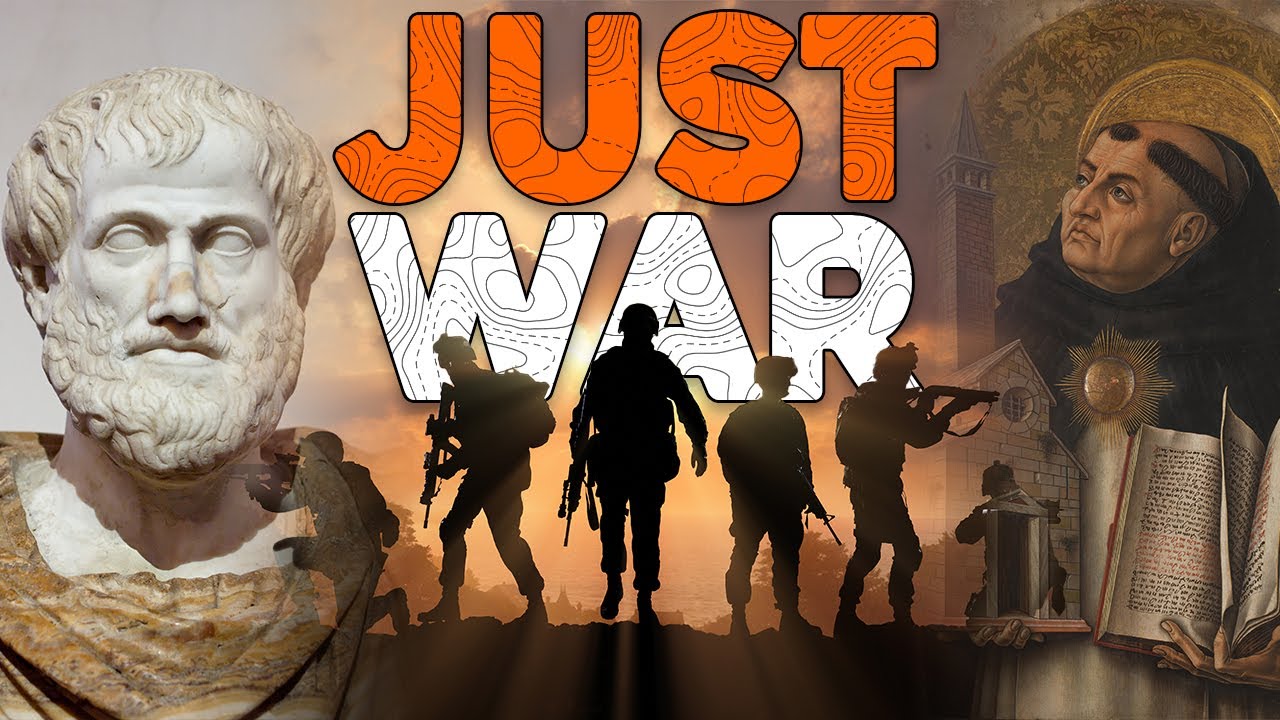

Theology and Spirituality
Where Does Augustine Talk About Just War
Published: February 10, 2024
Peter Smith, Editorial Director at Christian.net, combines deep insights into faith, politics, and culture to lead content creation that resonates widely. Awarded for his contributions to religious discourse, he previously headed a major organization for religious communicators, enhancing dialogue on faith's societal impacts.
Discover where Augustine discusses the concept of just war in his theology and spirituality teachings. Explore his insights on the topic.
(Many of the links in this article redirect to a specific reviewed product. Your purchase of these products through affiliate links helps to generate commission for Christian.net, at no extra cost. Learn more)
Table of Contents
Introduction
Augustine of Hippo, a towering figure in Christian theology, philosophy, and spirituality, made significant contributions to the understanding of just war theory. His insights, rooted in a deep understanding of human nature, morality, and the Christian faith, continue to influence ethical discussions on the use of force and the pursuit of peace.
As we delve into Augustine's writings, particularly "The City of God," "On Free Choice of the Will," and his letters, we gain valuable perspectives on the concept of just war. Augustine's thoughts on this topic are not only historically significant but also offer timeless wisdom that resonates in contemporary discussions on war, justice, and the ethical use of power.
In "The City of God," Augustine explores the nature of earthly cities and the heavenly city, providing a framework for understanding the complexities of human societies and the moral dilemmas they face. His examination of the fall of Rome and the Christian response to it sheds light on the challenges of maintaining justice and peace in a world marked by conflict and turmoil.
In "On Free Choice of the Will," Augustine delves into the intricacies of human choice and moral responsibility. His reflections on the nature of freedom and the ethical considerations that govern human actions offer profound insights into the justification for engaging in war and the principles that should guide such decisions.
Moreover, Augustine's letters, including his correspondence with various individuals and authorities, provide glimpses into his practical wisdom and pastoral concerns. Through these letters, we witness Augustine's engagement with real-world issues, including matters of war and peace, as he seeks to apply his theological and philosophical insights to the challenges of his time.
As we navigate Augustine's writings on just war, we embark on a journey of intellectual discovery and moral reflection. By examining his nuanced perspectives, we gain a deeper appreciation for the ethical complexities inherent in the concept of just war and the enduring relevance of Augustine's thought in shaping ethical discourse and decision-making in matters of conflict and peace.
Read more: Where Does It Talk About Advent In The Bible
Augustine's Views on Just War in "The City of God"
In "The City of God," Augustine presents a profound exploration of just war theory within the broader context of the human condition and the unfolding drama of history. Central to Augustine's perspective is the juxtaposition of two cities: the earthly city, marked by temporal pursuits and flawed human endeavors, and the heavenly city, characterized by the pursuit of divine truth and eternal values. Within this framework, Augustine grapples with the complexities of justice, power, and the moral legitimacy of war.
Augustine's reflections on the fall of Rome and the subsequent upheaval provide a backdrop for his examination of just war. He acknowledges the inevitability of conflict in the earthly city, where human ambitions, rivalries, and injustices often lead to violence and bloodshed. However, Augustine does not dismiss the possibility of justifiable war, recognizing that certain circumstances may necessitate the use of force to uphold justice and defend the innocent.
Crucially, Augustine emphasizes the importance of right intention in waging war. He contends that the pursuit of peace and the rectification of wrongs should underpin any decision to engage in armed conflict. Moreover, Augustine introduces the concept of legitimate authority, asserting that only those entrusted with the responsibility of governing society have the moral authority to declare and prosecute a just war.
In his exploration of just war, Augustine also grapples with the ethical dimensions of violence and its impact on human flourishing. He underscores the moral imperative to minimize harm and uphold the dignity of all individuals, even in the midst of conflict. Augustine's emphasis on proportionality and restraint reflects his deep concern for the ethical conduct of warfare, seeking to mitigate the destructive consequences of armed confrontation.
Furthermore, Augustine's insights in "The City of God" resonate with contemporary discussions on the ethical use of force and the pursuit of peace. His nuanced approach to just war theory, rooted in a profound understanding of human nature and the complexities of societal dynamics, continues to inform ethical deliberations on the legitimacy and morality of armed conflict.
In summary, Augustine's views on just war in "The City of God" offer a rich tapestry of ethical considerations, moral principles, and theological insights. His exploration of the tensions between the earthly and heavenly cities, the moral complexities of war, and the imperative of justice provides a compelling framework for engaging with the enduring challenges of conflict and peace in human societies.
Augustine's Views on Just War in "On Free Choice of the Will"
In "On Free Choice of the Will," Augustine delves into the intricate dynamics of human choice, moral responsibility, and the ethical considerations that underpin the concept of just war. Central to Augustine's exploration is the profound interplay between human freedom, moral agency, and the complexities of engaging in armed conflict.
Augustine grapples with the fundamental question of human agency and the moral implications of wielding power, particularly in the context of war. He acknowledges the inherent tension between the exercise of free will and the ethical constraints that govern the use of force. Augustine's reflections underscore the weight of moral responsibility that accompanies the decision to wage war, emphasizing the need for a conscientious evaluation of the justifications and consequences of such actions.
Moreover, Augustine's insights in "On Free Choice of the Will" shed light on the ethical dimensions of warfare, emphasizing the imperative of right intention and moral rectitude in the pursuit of armed conflict. He contends that the motivations underlying war must align with the principles of justice and the preservation of peace, cautioning against the misuse of power and the pursuit of self-serving agendas. Augustine's emphasis on the moral integrity of intentionality serves as a guiding principle for evaluating the justifiability of war and the ethical conduct of military endeavors.
Furthermore, Augustine grapples with the complexities of human nature and the moral ambiguities inherent in the use of force. His nuanced exploration of the ethical considerations surrounding war reflects a deep concern for the preservation of human dignity and the mitigation of harm, even in the context of armed confrontation. Augustine's insistence on the ethical imperative to minimize harm and uphold the intrinsic value of every individual resonates as a timeless ethical mandate that transcends historical and cultural contexts.
In summary, Augustine's views on just war in "On Free Choice of the Will" offer profound insights into the ethical complexities of armed conflict, the moral responsibilities that accompany the decision to wage war, and the imperative of aligning intentionality with the principles of justice and peace. His reflections continue to inform ethical deliberations on the justification and ethical conduct of war, serving as a timeless source of wisdom for navigating the complexities of human conflict and the pursuit of a just and peaceful world.
Augustine's Views on Just War in "Letters"
In Augustine's letters, we encounter a more personal and practical dimension of his views on just war. Through his correspondence with various individuals and authorities, Augustine grapples with the real-world implications of armed conflict, offering nuanced insights into the ethical considerations and moral responsibilities that accompany the decision to wage war.
One of the central themes that emerge from Augustine's letters is the imperative of moral discernment in matters of war and peace. He engages with the complexities of political and military decision-making, urging leaders to exercise prudence and ethical reflection in evaluating the justifiability of armed conflict. Augustine's emphasis on the moral dimensions of warfare underscores his deep concern for the preservation of justice and the mitigation of harm, even in the tumult of war.
Moreover, Augustine's letters reveal his pastoral engagement with individuals directly affected by war. His compassionate counsel and ethical exhortations reflect a profound commitment to upholding the dignity of all individuals, even amidst the ravages of armed conflict. Augustine's ethical framework extends beyond theoretical deliberations, encompassing the practical implications of war on human lives and communities.
Additionally, Augustine's letters provide glimpses into his advocacy for the pursuit of peace and reconciliation, even in the midst of turbulent times. His appeals to seek avenues for dialogue, understanding, and the restoration of harmony amidst conflict underscore his unwavering commitment to the ethical imperative of peacebuilding. Augustine's vision for a world marked by justice and reconciliation permeates his correspondence, offering a compelling ethical framework for navigating the complexities of war and its aftermath.
Furthermore, Augustine's letters serve as a testament to his unwavering conviction that the pursuit of just war must be anchored in the principles of moral rectitude, legitimate authority, and the imperative of minimizing harm. His ethical exhortations and pastoral guidance reflect a profound engagement with the ethical complexities of armed conflict, offering timeless wisdom that resonates in contemporary discussions on the ethical use of force and the pursuit of peace.
In summary, Augustine's letters provide a window into his practical wisdom and pastoral concern regarding just war. His ethical insights, moral exhortations, and advocacy for peace offer a compelling framework for engaging with the ethical complexities of armed conflict, underscoring the enduring relevance of Augustine's thought in shaping ethical discourse and decision-making in matters of war and peace.
Conclusion
In conclusion, Augustine's profound insights on just war theory, as articulated in "The City of God," "On Free Choice of the Will," and his letters, offer a rich tapestry of ethical considerations, moral principles, and pastoral wisdom. His nuanced exploration of the complexities of armed conflict, the moral responsibilities that accompany the decision to wage war, and the imperative of aligning intentionality with the principles of justice and peace continues to resonate as a timeless source of wisdom for navigating the complexities of human conflict and the pursuit of a just and peaceful world.
Throughout his writings, Augustine emphasizes the ethical imperative of right intention, legitimate authority, and the minimization of harm in the pursuit of just war. His profound engagement with the moral dimensions of warfare reflects a deep concern for the preservation of justice and the dignity of all individuals, even amidst the tumult of armed conflict. Augustine's ethical framework extends beyond theoretical deliberations, encompassing the practical implications of war on human lives and communities, as evidenced in his pastoral engagement with individuals directly affected by war.
Moreover, Augustine's advocacy for the pursuit of peace and reconciliation, even in the midst of turbulent times, underscores his unwavering commitment to the ethical imperative of peacebuilding. His appeals to seek avenues for dialogue, understanding, and the restoration of harmony amidst conflict offer a compelling ethical framework for navigating the complexities of war and its aftermath.
As we reflect on Augustine's views on just war, we are reminded of the enduring relevance of his ethical insights in contemporary discussions on the ethical use of force and the pursuit of peace. His profound understanding of human nature, moral agency, and the complexities of societal dynamics continues to inform ethical deliberations on the legitimacy and morality of armed conflict, serving as a guiding light for ethical decision-making in matters of war and peace.
In essence, Augustine's contributions to the discourse on just war theory stand as a testament to the enduring significance of ethical reflection and moral discernment in navigating the complexities of human conflict. His timeless wisdom continues to inspire ethical deliberations and shape the ethical conduct of warfare, offering invaluable guidance for fostering a world marked by justice, peace, and the inherent dignity of all individuals.






